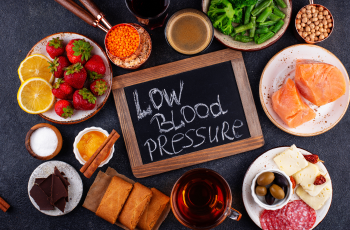Causes of high blood pressure
To comprehend high blood pressure, envision your circulatory system as a complex network of highways bustling with activity. High blood pressure can be likened to rush hour traffic, where vehicles (blood cells) are propelled at an alarming rate and in uncomfortably close proximity, exerting undue stress on the roadways (blood vessels). This phenomenon can stem from a myriad of factors:- Hereditary predisposition: Much like the inheritance of physical traits such as eye colour or hair texture, some families carry a genetic predisposition towards high blood pressure.
- Lifestyle factors: Consider your body akin to a finely tuned sports car. Neglecting routine maintenance can lead to mechanical failures, similarly, a diet lacking in nutritional value, sedentary habits, tobacco use, and excessive intake of alcoholic beverages can catalyse the elevation of blood pressure.
- Chronic stress: Persistent stress functions as a continuous state of high alert within your body, perpetually elevating blood pressure levels over extended periods.
What does high blood pressure mean? Effects across the body
High blood pressure is far from passive; it actively instigates a cascade of detrimental effects across various bodily systems, culminating in severe complications:- Aneurysm: Visualise a balloon stretched to its limits. Analogously, high blood pressure can induce weak sections of blood vessel walls to swell or rupture.
- Cardiovascular emergencies: The relentless strain imposed on the heart can precipitate a heart attack, or a blockage in cerebral arteries can trigger a stroke, akin to a dam breaching after enduring sustained pressure.
- Renal dysfunction: Kidneys serve as the body's filtration units. High blood pressure can impair these vital organs, leading to renal insufficiency or failure.
- Ocular disorders: The delicate blood vessels within the eyes are susceptible to damage from high blood pressure, potentially resulting in impaired vision or blindness.
- Cognitive decline: Picture your brain as a meticulously tended garden. High blood pressure can deprive certain regions of the brain of essential nutrients, leading to memory deficits and heightening the risk of dementia.
- Metabolic syndrome: This constellation of conditions amplifies the risk of heart disease, stroke, and type 2 diabetes, setting off a chain reaction initiated by high blood pressure.
- Sexual health concerns: Reduced blood flow due to high blood pressure can adversely affect sexual function in both men and women, manifesting as erectile dysfunction in men and decreased libido in women.
Gender-specific perspectives
The impact of high blood pressure varies between genders, underscoring the necessity for tailored awareness and interventions.What does high blood pressure mean for men?
Young men, particularly those under the age of 45, exhibit a higher propensity for developing high blood pressure compared to their female counterparts. This disparity can be attributed to lifestyle choices prevalent among men, such as higher incidences of smoking and alcohol consumption. Furthermore, men grappling with high blood pressure may encounter erectile dysfunction, serving as a poignant reminder of the interconnectedness of cardiovascular health and overall well-being.What does high blood pressure mean for women?
Women face unique challenges related to blood pressure, especially during pivotal life stages such as pregnancy and menopause. Gestational hypertension poses significant risks to both maternal and fatal health, underscoring the critical importance of prenatal care. Meanwhile, the hormonal fluctuations accompanying menopause can contribute to an uptick in blood pressure, necessitating vigilant monitoring and proactive management strategies.Recognising the warning signs: When to seek medical intervention?
Timely recognition of symptoms and prompt medical consultation are paramount in managing high blood pressure effectively. Should you experience severe headaches, difficulty breathing, recurrent nosebleeds, or chest discomfort, immediately contact your doctor. Moreover, regular medical check-ups form the cornerstone of early detection and effective management, enabling individuals to navigate the complexities of high blood pressure with confidence.Can an online doctor help through telehealth appointment?
In the digital age, telehealth offers up a platform for individuals to engage with healthcare professionals from the comfort of their homes. These virtual consultations facilitate the provision of personalised advice, ongoing condition monitoring, medication adjustments, and lifestyle modification recommendations, all without the need to physically visit a clinic. This innovative approach democratises access to healthcare, ensuring that geographical barriers no longer impede the pursuit of wellness.Book a telehealth appointment within minutes with a registered doctor to discuss your health needs, anytime day or night.
High blood pressure looms large as a silent, yet potent, threat to our health, demanding our collective attention and action. By illuminating the pathophysiology, acknowledging its far-reaching consequences, and understanding the nuances of its impact on different demographics, we empower ourselves to confront this challenge head-on. Knowledge serves as our most formidable weapon against high blood pressure, equipping us with the insights necessary to safeguard our cardiovascular health and, by extension, our quality of life.
By adopting a proactive stance, prioritising preventive measures, and leveraging the tools at our disposal, we can chart a course towards a future where high blood pressure is managed effectively, allowing us to live fuller, healthier lives.
In essence, the battle against high blood pressure is not merely a matter of personal health but a testament to our commitment to fostering a culture of wellness and longevity. By educating ourselves, advocating for regular screenings, and embracing innovative solutions like telehealth, we pave the way for a brighter, healthier tomorrow.

Consult an Online Doctor in 15 mins










 Facebook
Facebook Instagram
Instagram LinkedIn
LinkedIn



